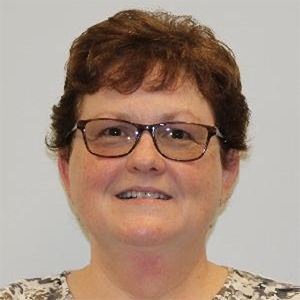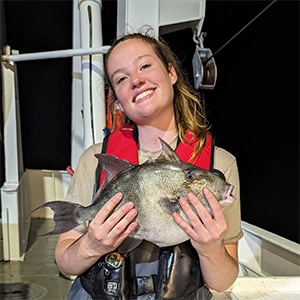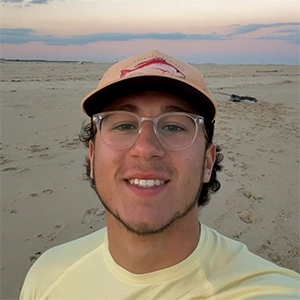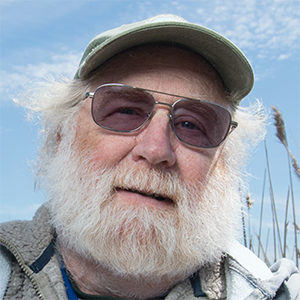
Professor Emeritus
Ken Able
Downloads
Full CV | Down The Shore: Station 119
Research Interests
My interests are diverse and include the life history and ecology of fishes with emphasis on habitat quality as it relates to recruitment. These studies have occurred in salt waters from less than 10 mm in salt marshes to > 300 meters at the edge of the continental shelf on a diverse array of species. Recently, these studies have been focused on an enhanced understanding of estuarine ecosystems with an emphasis on larval supply as it relates to recruitment and the habitat ecology of piscivorous fishes. The essence of these activities is based on several continuous fish monitoring efforts in the Mullica River – Great Bay estuary over the last 20-25 years. These have allowed us to answer questions about the impacts of fisheries, urbanizing estuaries, and climate change on fishes.
Short History
I received my Ph.D. from the Virginia Institute of Marine Science/College of William and Mary in 1974, followed by a postdoctoral fellowship at McGill University. I began my appointment at Rutgers University in 1977, and have been the Director of the Rutgers University Marine Field Station since 1986. In that time, I have been the advisor for 37 graduate students (14 Ph.D. and 23 M.S.) and 23 postdoctoral fellows. During this period I was awarded the Oscar Sette Award from the Marine Fisheries Section of the American Fisheries Society, the 2014 Research Excellence Award from the School of Environmental and Biological Sciences at Rutgers University and, most recently, was the 2014 recipient of the Dr. Nancy Foster Habitat Conservation Award from NOAA Fisheries, Office of Habitat Conservation.
Teaching Efforts
Ichthyology (Course #11.628.321) and Byrne Seminar: Winter in the Estuary (Course #11.090.101). I am also involved in education outside of the classroom. RUMFS typically supports 3-5 RIOS summer interns per year (including one as the result of a collaborative agreement with Stockton University). I, along with others at RUMFS, am also engaged in training undergraduates and post-B.S. individuals year-round.
Outreach
Outreach activities typically take place in meetings and gatherings elsewhere along the East Coast (New York Harbor, Gulf of Mexico/coast of Louisiana) and in New Jersey (Jacques Cousteau NERR, Tuckerton Seaport). Others result from informal collaborations with the NJDEP Bureau of Fisheries. Out most successful effort is an Open House at RUMFS every September which draws 300-800 individuals. Interactions with the fishing community (recreational and commercial) result from face-to-face, one-on-one conversations that take place on docks, in bait shops, etc., during research and fishing tournaments.
Select Publications
Able, K.W. and M.P. Fahay. 1998. The First Year in the Life of Estuarine Fishes in the Middle Atlantic Bight. Rutgers University Press. 342 p.
Able, K. W. and M. P. Fahay. 2010. Ecology of Estuarine Fishes: Temperate Waters of the Western North Atlantic. Johns Hopkins University Press, Baltimore, MD. 566 p.
Able, K. W. 2015. Station 119: From Lifesaving to Marine Research. Down the Shore Publishing, West Creek, NJ. 128 p.

Director of RUMFS
Thomas Grothues
Research
I am interested in the abundance and distribution of fishes as responses to physical factors. These responses include those that could be considered involuntary, such as distribution of larvae by ocean currents and mortality or loss of reproductive capacity in unsuitable environments. Responses also include those that are voluntary (behavioral), such as migration, ranging, and sheltering (including burial). The physical factors that I investigate as impacts include natural and anthropogenic perturbations such as restoration efforts, urbanization of water fronts, seasonal and inter-annual water quality fluctuations and ocean structure. In the last 10 years I have worked extensively with adult and juvenile stages on movement, migration, and habitat choice. In doing so, I developed an interest in furthering technologies and strategies to meet the challenges of studying highly mobile fish in the ocean, including sablefish and salmon in deep Alaskan waters, sturgeon, flounder, and other sport fishes along the East and Gulf coasts of the US, and pelagic thresher sharks in the Visayan Sea, Philipinnes. The development of tools such as payload-controlled autonomous underwater vehicles for fish tracking and imaging, and related processing algorithms for sonar image classification and decision making, can be revealing but require understanding of natural history and behavior in order to be effective in implementation. These investigations are therefore truly cross-disciplinary and involve collaborations with other biologists, physical and geological oceanographers, commercial fishers, and mechanical, electrical, computer, and acoustical engineers, as well as interaction with Federal, State, municipal, and private-sector resource managers.

Administrative Director - Megalopolitan Coastal Transformation Hub
Lisa Auermuller
Downloads:
Bio:
Lisa Auermuller serves as the Administrative Director of Rutgers’ NSF-funded Megalopolitan Coastal Transformation Hub (MACH). In this role, Lisa is the central manager of overall operations of the multi-institution effort. Lisa establishes mechanisms for collaborative sharing of findings among project partners, conducts regular outreach to promote coordination and collaboration with government agencies, and community leaders, and facilitates meaningful and routine collaboration and sharing among project partners.
Prior to 2023, Lisa was the Assistant Manager of the Jacques Cousteau National Estuarine Research Reserve (JC NERR) in Tuckerton, NJ where she had been employed since 2002. Lisa oversaw the day-to-day management of JC NERR’s Coastal Center as well as the Reserve’s education, outreach, communications, and Coastal Training Program.
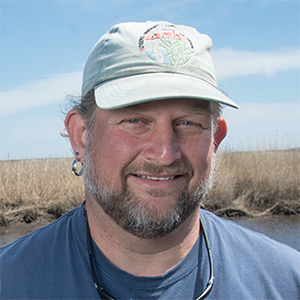
Laboratory Researcher II
Roland Hagan
Research interests:
Interests include the life history and ecology of estuarine fishes. Conducting long term fish collections utilizing a multitude of sampling gears. Maintaining time series data to develop continued utilization in current research. Executing various sampling methodologies across multiple estuaries throughout the Mid-Atlantic.
Short History:
I received my B.S. from Stockton University in 1990, followed by statistical coursework at Rutgers University. I began an internship at Rutgers University Marine Field Station (RUMFS) in 1989, becoming a field technician shortly after. Departed for the high seas of the pacific in the early 90’s and cephalopod studies in Woods Hole before returning to lead long term ichthyoplankton collection at RUMFS in 2001, entering into station operations in 2006. Since then, involvement as executive committee member in the Mid-Atlantic Chapter of the American Fisheries Society and support of Stacy Moore Hagan memorial scholarship at Stockton University has enhanced undergraduate fisheries studies in South Jersey.
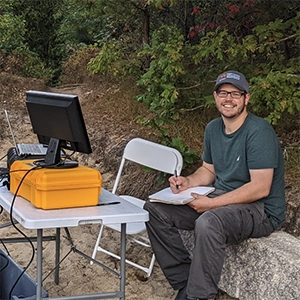
Lab Researcher IV
- Justin.procpio@rutgers.edu
- 6092498807
- 800 Great Bay Blvd, Tuckerton, NJ 08087
Justin Procopio
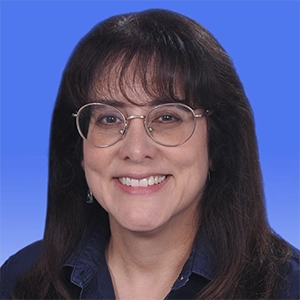
Lab Technician
- ka969@marine.rutgers.edu
- RUMFS
Kristin Albert
Short Bio
Kristin is a retired chemist with over 30 years of experience in research chemistry and microscopy. Kristin earned her BA in Chemistry at West Virginia University. She has an avid interest in nature, wildlife and the conservation of natural places. Her hobbies include birdwatching, collecting and showing model horses, photography, music, painting and journaling. I am passionate about learning more about the abundant life in the sea and the biodiversity that surrounds us.
Research interests include my passion for learning about the abundant life in the sea and the biodiversity that surrounds us, identification of fish and birds, and all wildlife, how each species contributes to the ecology of its environment.
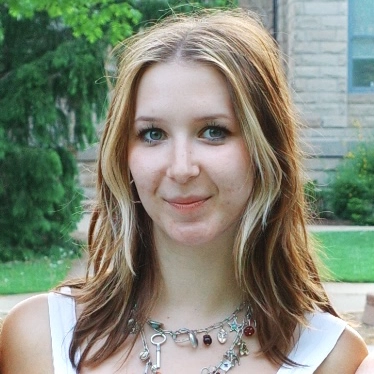
NOAA Education and Engagement Fellow
Bryn Kearney
Downloads:
Short Bio:
Bryn Kearney is the NOAA Coastal Resilience Program Education and Engagement Fellow for "Building a Climate Ready NJ," the NOAA funded grant aiming to implement transformative climate resilience initiatives across NJ communities. Bryn graduated from Oberlin College in May of 2025 with a B.A. In Environmental Studies and Economics, where she received High Honors for her collaborative research focusing on the impacts of exposure to pro social messaging through digital media content on climate action. Bryn previously worked for the digital communications organization, Environmental Dashboard, as a researcher and the Community Voices Student Coordinator and at the NOAA Chesapeake Bay Office as an Environmental Literacy Intern.

